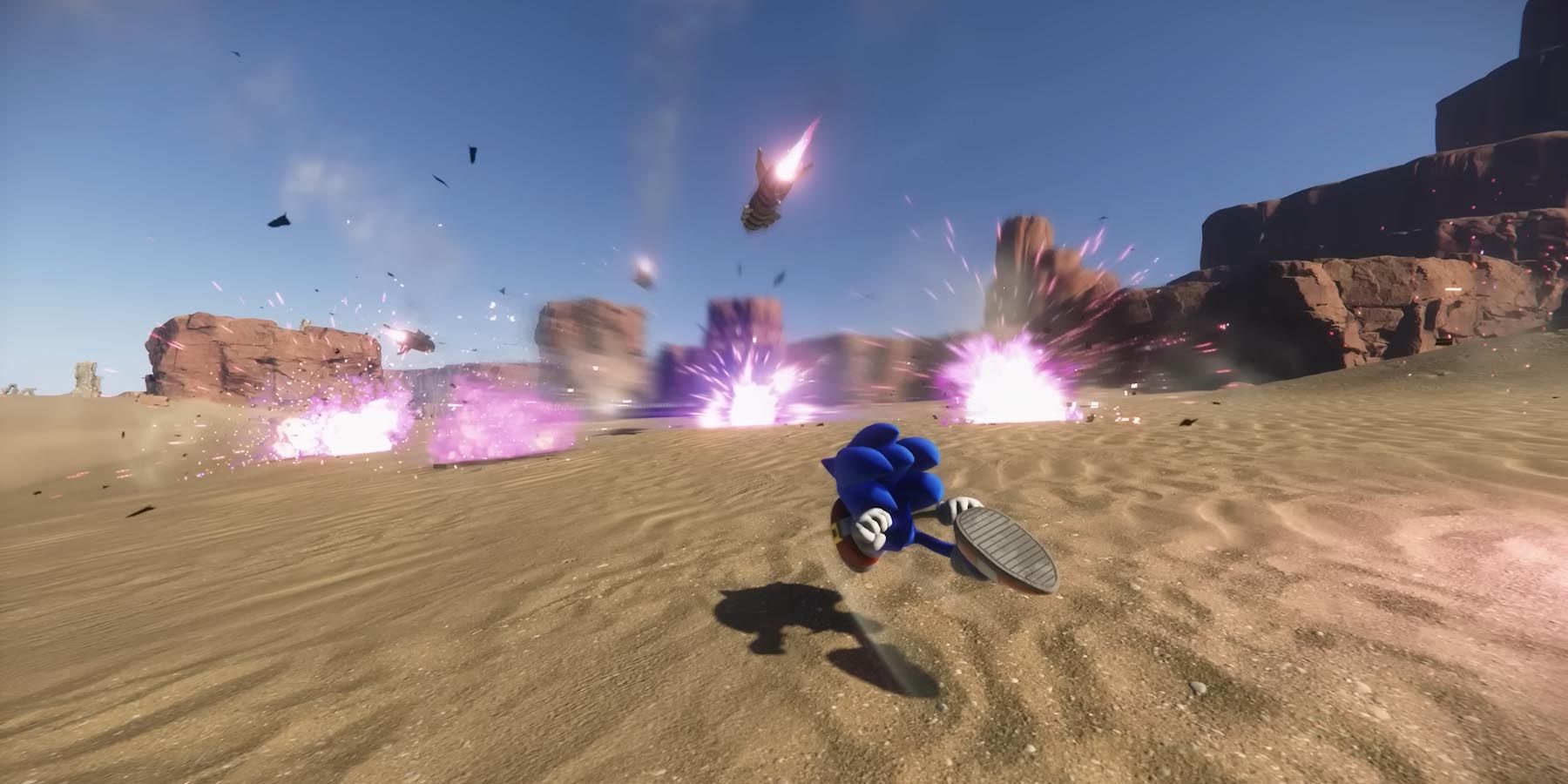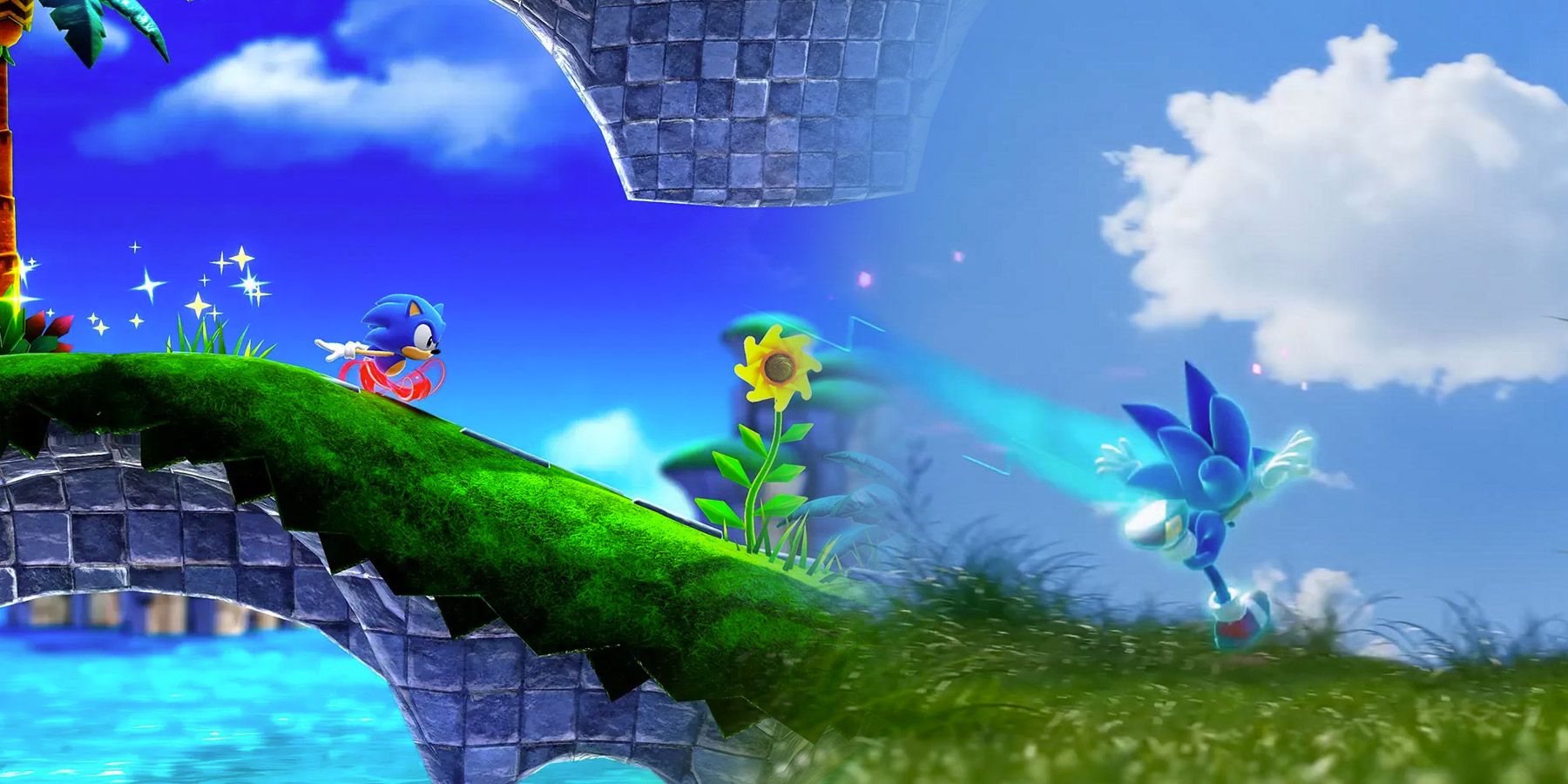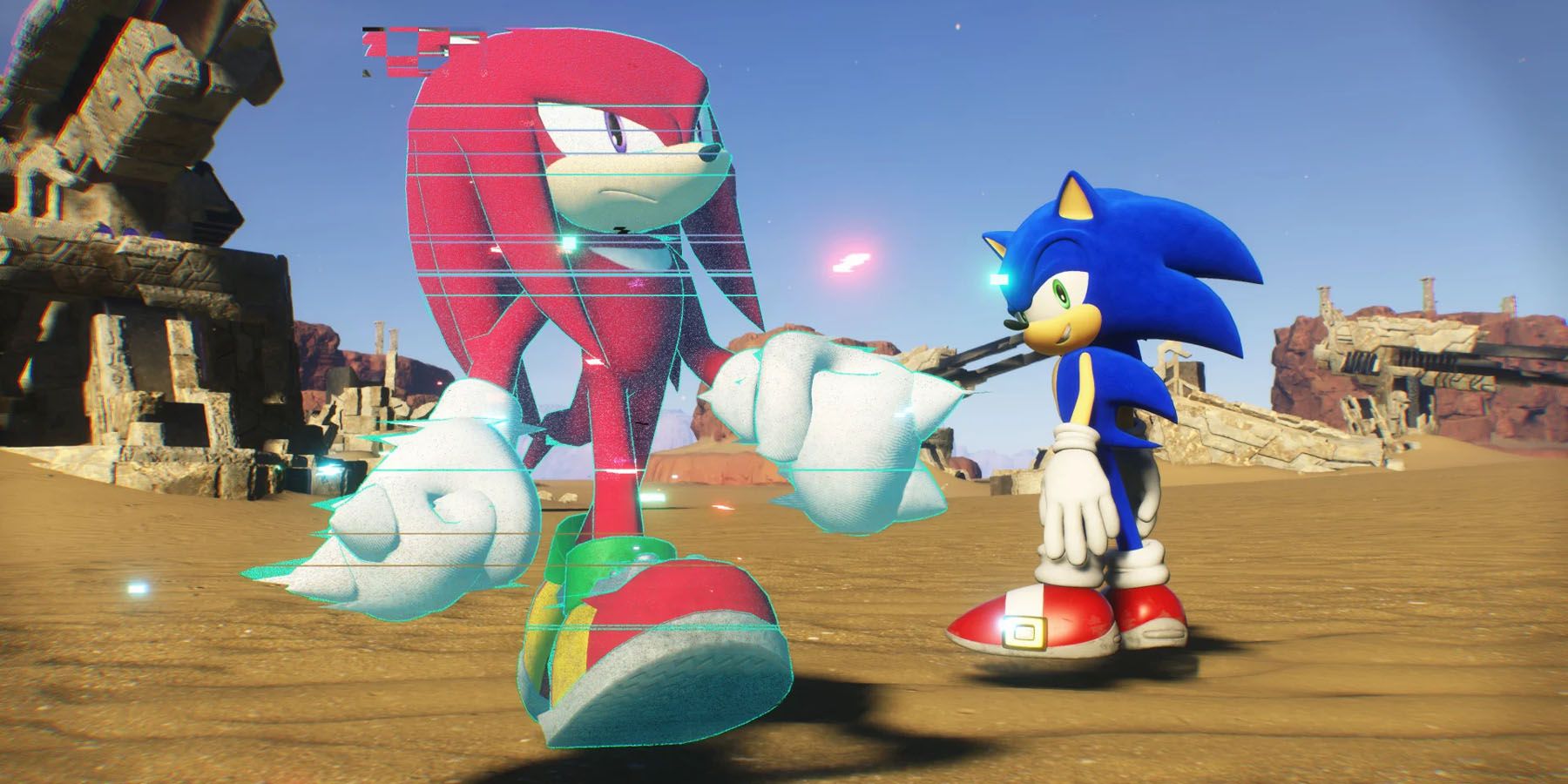
Insights from Sonic Frontiers Developers on Production Challenges

Discover the firsthand accounts from Sonic Team developers as they recount the challenges encountered during the tumultuous production journey of Sonic Frontiers and the path to its eventual release.
Sega and Sonic Team recently revealed some behind-the-scenes stories about the challenging development of Sonic Frontiers in 2022. They discussed the team's size, the obstacles faced during development, and how they managed to overcome the new challenges that arose during the five-year development process.
Sonic Frontiers was initially released on November 8, 2022, receiving a mix of positive and negative feedback. Fans appreciated the game's bold move towards open 3D platforming, exciting Super Sonic boss battles, and character growth. However, criticisms were aimed at the overall storyline, inconsistent presentation, and the reuse of level designs in the cyberspace stages. Despite its flaws, Sonic Frontiers became one of the highest-selling Sonic games ever, reaching over 3.5 million units sold by the end of 2023. Although Sonic Team had previously discussed the troubled production of Sonic Frontiers, a recent interview has provided more insights into the challenges faced during its development.
The Early Years of Sonic Frontiers
Sega of Japan recently shared an interview on their recruitment page where developers discussed the challenges they faced during the development of Sonic Frontiers. They mentioned encountering issues with the open-zone gameplay and revealed that their initial prototype was deemed "unsatisfactory." Despite this setback, they continued to work on adding new features and building a new engine to support the open-world concept. The team felt a strong sense of urgency, with background designer Yuki Takahashi expressing the importance of creating something innovative to avoid failure.
Sonic Frontiers Photo Mode Mod Change - Sonic Frontiers' Early Years
To address the unexciting gameplay, Sonic Frontiers saw an expansion of the world and the introduction of puzzles. However, this change ended up slowing down the game and diminishing the fast-paced feel that is essential for a Sonic game. In a stroke of genius, a young programmer proposed the concept of generating grind rails in Sonic Frontiers as a reward for solving puzzles. This addition not only injected fun into the game but also offered players a thrilling way to navigate the world and accomplish their missions.
The interview delved into the game's numerous playtests, where feedback was gathered from external playtesters multiple times. Initially, the response to early versions of Sonic Frontiers was quite negative. However, the team saw internal playtest scores improve as they continued to refine the game, eventually reaching high scores of 8s and 9s. This marked the first time Sonic Team utilized repeated external playtests to enhance the game during its development.
Given the challenges faced during the development of Sonic Frontiers, there was a real possibility that if the game had not succeeded, Sonic Team might not have had the chance to create another Sonic game on such a grand scale. With the game receiving positive reviews upon its release and achieving success in terms of sales, it was a delightful surprise for all involved. As a result, Sega decided to allocate a larger budget for a potential sequel to Sonic Frontiers in the future.
Editor's P/S:
The article provides a fascinating glimpse into the challenges and triumphs of developing Sonic Frontiers. It highlights the team's determination to create an innovative and successful game despite setbacks. The inclusion of grind rails as a reward for solving puzzles demonstrates the team's creativity and ability to adapt to feedback. The article also underscores the importance of playtesting and the positive impact it had on the game's development.
Overall, the article evokes a sense of admiration for the resilience and ingenuity of the Sonic Frontiers development team. It shows that even when faced with obstacles, innovation and perseverance can lead to great results. The article also raises the possibility of an even more ambitious Sonic game in the future, which is an exciting prospect for fans of the franchise.













